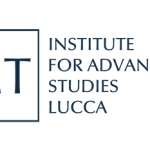 Imaging the Past (Lucca 22-25 Jun 16) IMT School for Advanced Studies, Lucca, Italy, June 22 – 25, 2016 Deadline: Apr 18, 2016 Imaging the Past/Collecting the Future: Archive, Photography, Cinema, Museums. First International «LYNX Center for the Interdisciplinary Analysis of the Images» Conference IMT School for Advanced Studies, Lucca, Italy 22-25 June 2016 Keynote Speakers: Marta Braun (Ryerson University); Angela Dalle Vacche (Georgia Institute of Technology); Patrizia Di Bello (Birkbeck College); Jennifer Tucker (Wesleyan University); Simone Venturini (University of Udine).
Imaging the Past (Lucca 22-25 Jun 16) IMT School for Advanced Studies, Lucca, Italy, June 22 – 25, 2016 Deadline: Apr 18, 2016 Imaging the Past/Collecting the Future: Archive, Photography, Cinema, Museums. First International «LYNX Center for the Interdisciplinary Analysis of the Images» Conference IMT School for Advanced Studies, Lucca, Italy 22-25 June 2016 Keynote Speakers: Marta Braun (Ryerson University); Angela Dalle Vacche (Georgia Institute of Technology); Patrizia Di Bello (Birkbeck College); Jennifer Tucker (Wesleyan University); Simone Venturini (University of Udine).
Fueled by the focus of the LYNX research center, specifically the interdisciplinary analysis of images, this conference proposes to investigate photographic and cinematographic images (as both lens-based products and the fruit of new media technologies) in terms of their form, the systems that produce them, the modes and techniques of perception associated with them and the processes and trajectories through which they circulate by exploring the multiple, diverse relations between these images and the primary spaces dedicated to their preservation and conservation, namely archives and museums. While this conference is grounded in certain precise conceptual perspectives on the archive (Giorgio Agamben, Jacques Derrida), it is not intended to explore the discursive form of photographic and cinematographic archives and museums; rather, it proposes to analyze the various practices through which they are constructed and contested as well as the diverse functions and uses of archives and museums as physical and institutional sites (participation and access), both in terms of the content (material or non) they contain and the way this content is interpreted, (re)configured, (re)activated, (re)animated and (re)appropriated. This conference proposes to employ diverse perspectives and methodological approaches to reflect on the relationships between archives, museums and memory (with particular emphasis on the role of the image as evidence, proof, documentation and memorandum). It also seeks to go beyond this nexus, however, by inviting participants to reflect on the relationship between images and power as a complex horizon that shapes analytical perspectives on operations of positioning and arranging images (photographic and cinematographic, in this case) within the institutions dedicated to preserving them. Indeed, any act of selecting, conserving and reproducing images might be seen as a specific articulation of the relationship between images and power.
Possible topics include:
– The notion of archive and/or museum investigated through the history of specific photographic or cinematographic collections. The organizers welcome proposals analyzing collections of art or of the work of individuals artists as well as those investigating scientific, medical, criminological, legal, ethnographic collections; we also welcome studies of either private, amateur collections (photo albums or family films) or professional ones, including research focused on the possible relationships between these various types.
– Fictional or non-fictional photographic/cinematographic/video representations that narrate the museum and/or museum practices, and the archive and/or practices of archiving.
– Fictional or non-fictional photographic/cinematographic/video representations that explicitly engage the issue of constructing individual or collective memory with the implied construction of a space of memory (archive or museum, understood broadly).
– The effects and consequences of web-based and digital technologies on archival and museum practices, in particular techniques of constructing/reconstructing memory.
– The history and meaning of conserving or, even more so, destroying or rendering unusable, photographic and cinematographic archives and museums.
– The history of photographic and cinematographic practices aimed at resisting archiving and musealization as well as practices of silence, absence and exclusion from the spaces of the archive and museum.
The schedule for the morning includes presentations by the Keynote speakers in the form of lessons/workshops, while the afternoon period is set aside for paper presentations. Although the conference welcomes papers from scholars at any stage of their career, it is especially aimed at MA and PhD students and early career researchers. Proposal Submission Process This call for papers is open to either single papers or panel proposals. Proposals for individual papers should be no longer than 300 words, written in English and include a short CV (10 lines max). Final papers must fit within a 25-minute presentation time (including any audiovisual material used to complement the presentation). Proposals for pre-constituted panels should be submitted by the panel chair and consist of the collected individual paper proposals and authors’ CVs in addition to a brief overview of the panel. Deadline for proposals: April 18, 2016. Please submit proposals to: internationallynxconference@gmail.com Notifications about the status of the proposal will be sent in late April/early May. Any questions about the process should also be sent to the address above Practicalities A registration fee (€30 + bank expenses) will be applied. Participants are welcome to eat at the IMT School for Advanced Studies Lucca Canteen for the duration of the conference for a cost of € 5.40 per meal. A conference dinner (optional) is scheduled. The cost is €35 per person. For any further details, please visit the conference webpage at: https://www.imtlucca.it/lynxconf2016/

Leave a Reply
You must be logged in to post a comment.